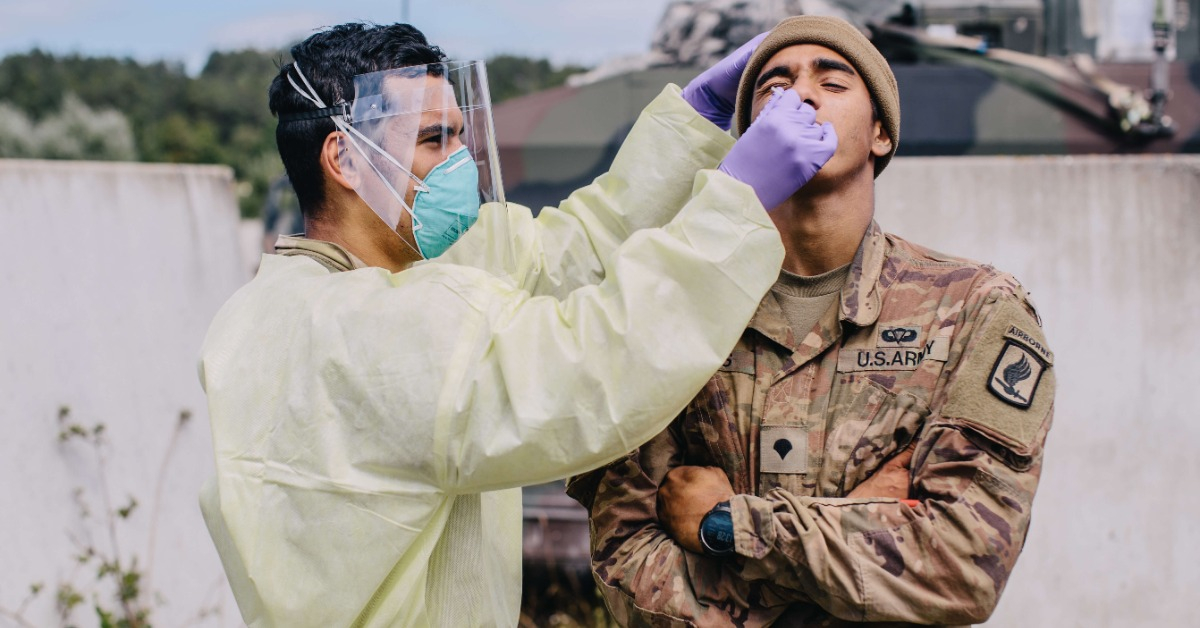Defense Threat Reduction Agency and the Defense Innovation Unit Launch the EXHALE Program
The Department of Defense (DoD) seeks a handheld device that can non-invasively detect pre-symptomatic early infections in humans through an analysis of exhaled breath components. The Defense Threat Reduction Agency (DTRA) and the Defense Innovation Unit (DIU) are partnering to leverage recent advances in rapid sampling, detection, and analytical technology to analyze volatile organic compounds (VOCs) and aerosols that are collected from a human subject’s exhaled breath that serve as telltale signs of early infection. Early detection would permit early intervention that can mitigate impacts on operational readiness.
Men and women in uniform routinely operate in remote and austere environments where access to diagnostic testing or medical personnel is limited. In these environments, the risk of contracting an infectious disease is often high, and sudden illness can lead to mission failure. Existing mobile diagnostic testing equipment does not meet the needs of the complex operational environment.
Prototypes developed under the EXHALE Program will fill a gap in early infectious disease detection with the intent of preventing or mitigating the operational impact of infectious respiratory disease transmission among the force, wherever deployed. Such technology would provide the DoD with a strategic advantage as it would allow for the earliest possible disease detection for every warfighter. Apart from disease detection capability this platform technology will also enable the collection of exhaled breath signatures that can be correlated with warfighter performance.
“The EXHALE program demonstrates how DIU is able to deliver game-changing technology for a real-world and relevant problem warfighters face. Working with the commercial world has allowed us to exploit previously inaccessible biomarkers of infection, human health, and performance,” said Dustin Yee, Program Manager (contractor) of the EXHALE Program at DIU.
Two companies, Owlstone and Detect-ION, have both received awards to develop prototypes of exhaled breath diagnostics under the EXHALE Program. This three year prototype effort aligns with other DIU efforts to ensure operational readiness, including developing wearable early infectious disease warning systems for service members (RATE), broad-spectrum prophylactics (Panacea), rapid molecular detection probe discovery (SYMBA), and in this project, a modular and easily deployable diagnosis system to forward-operating units.
